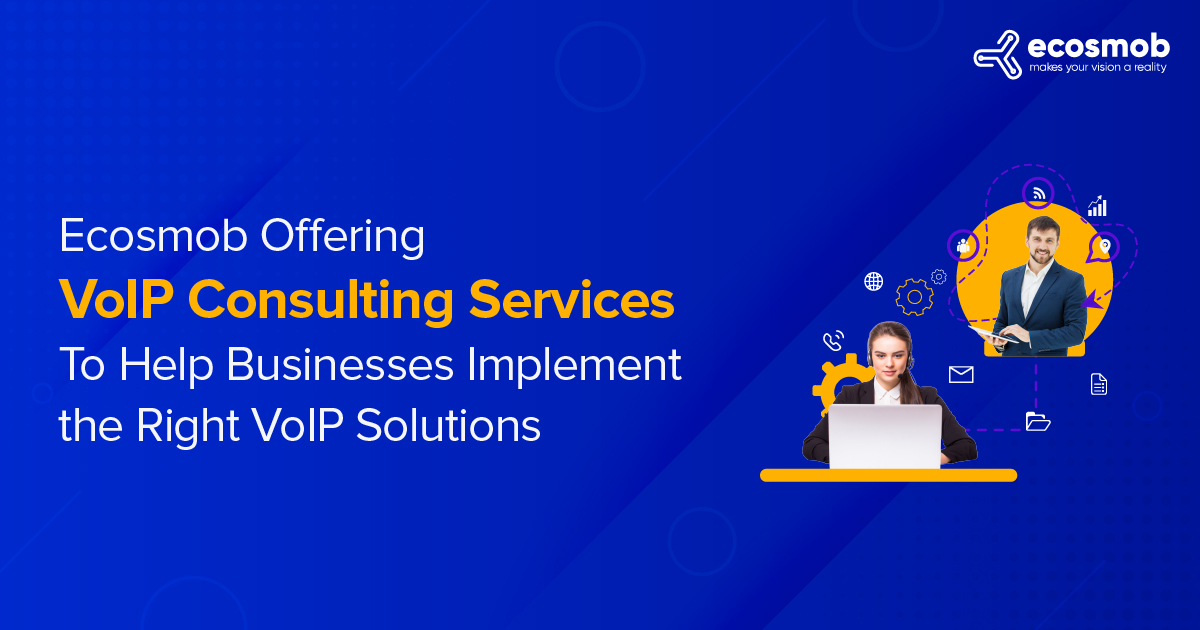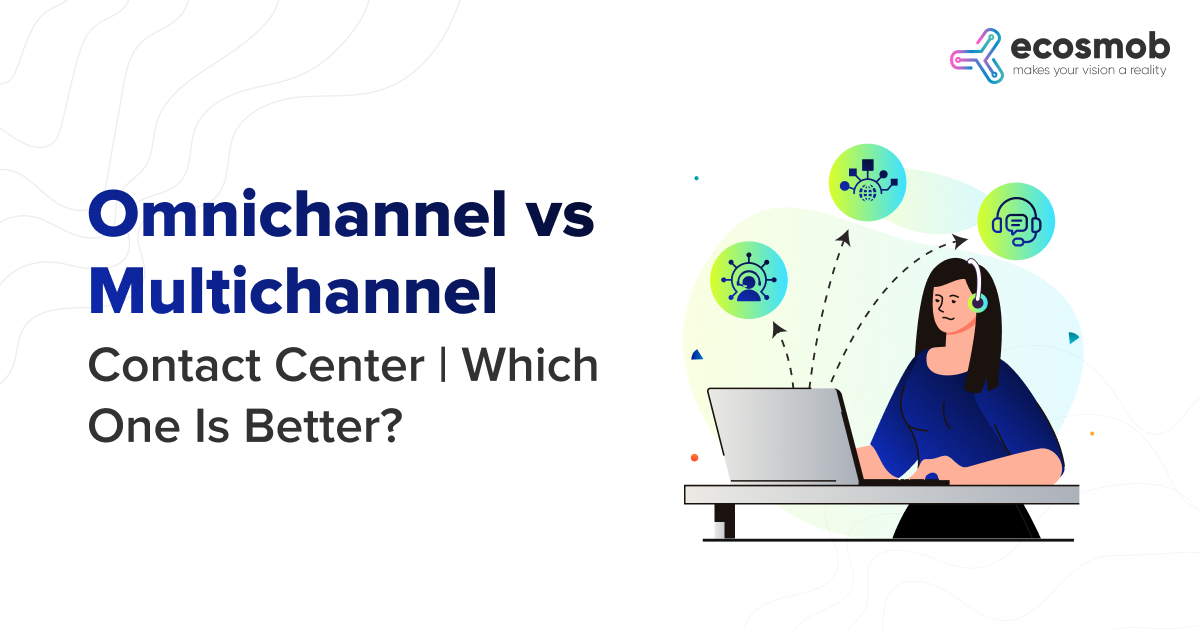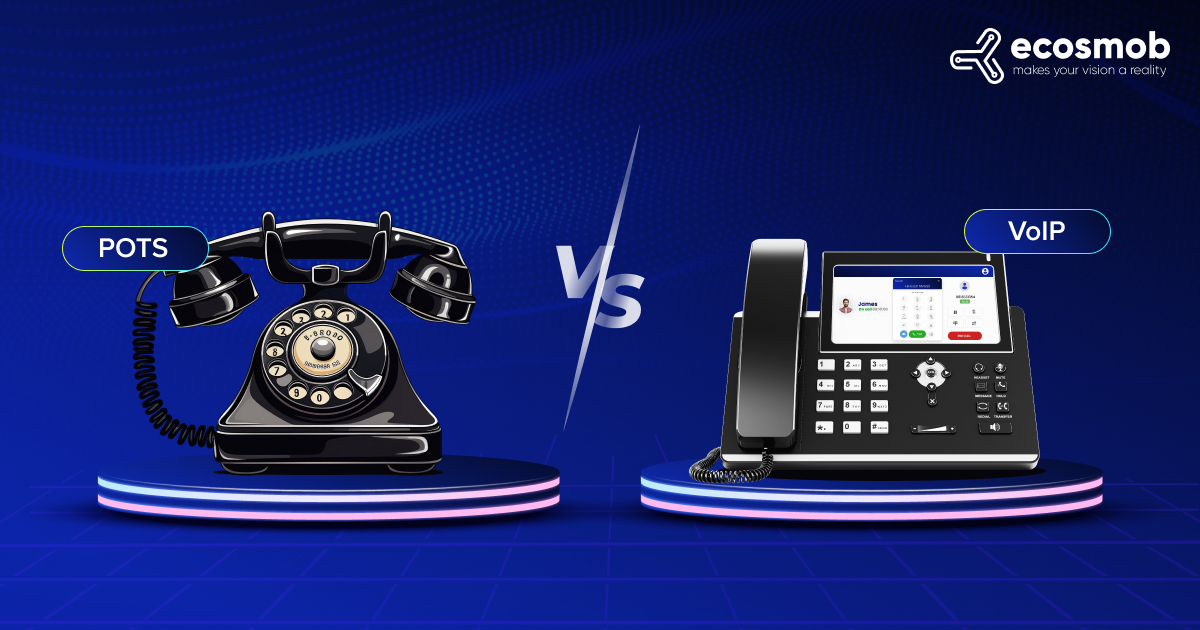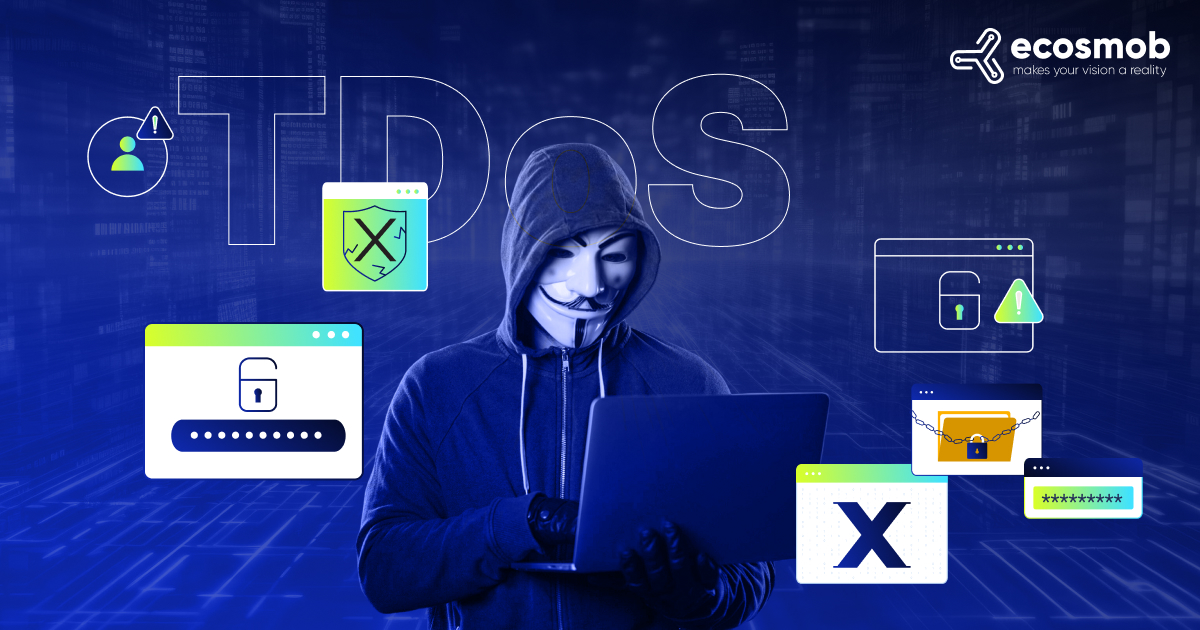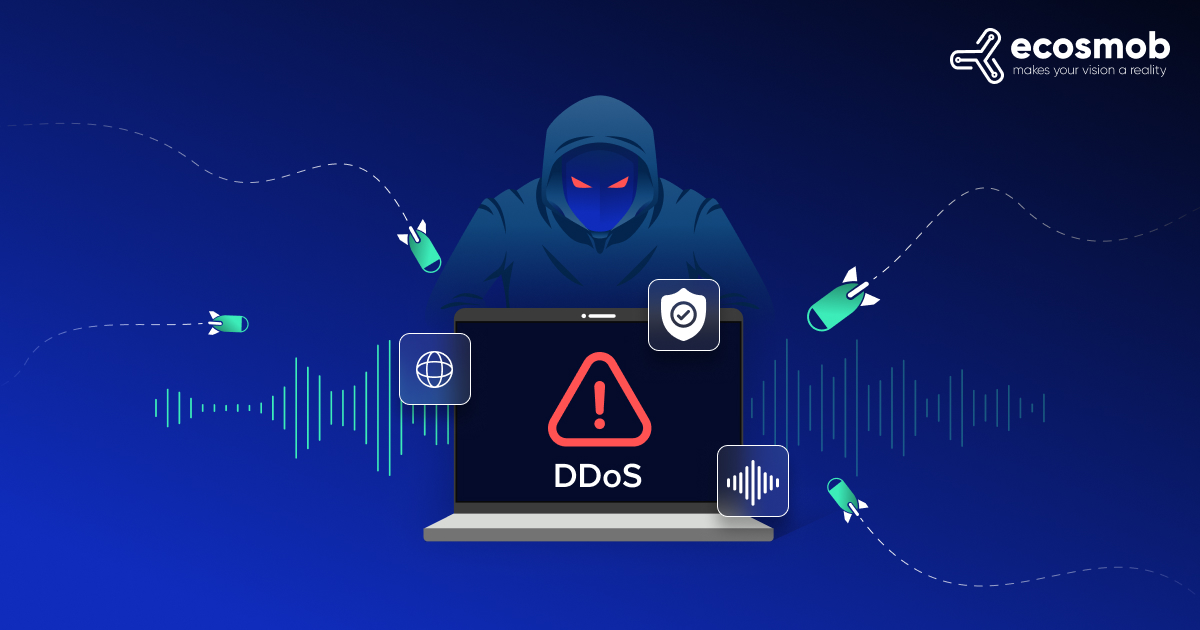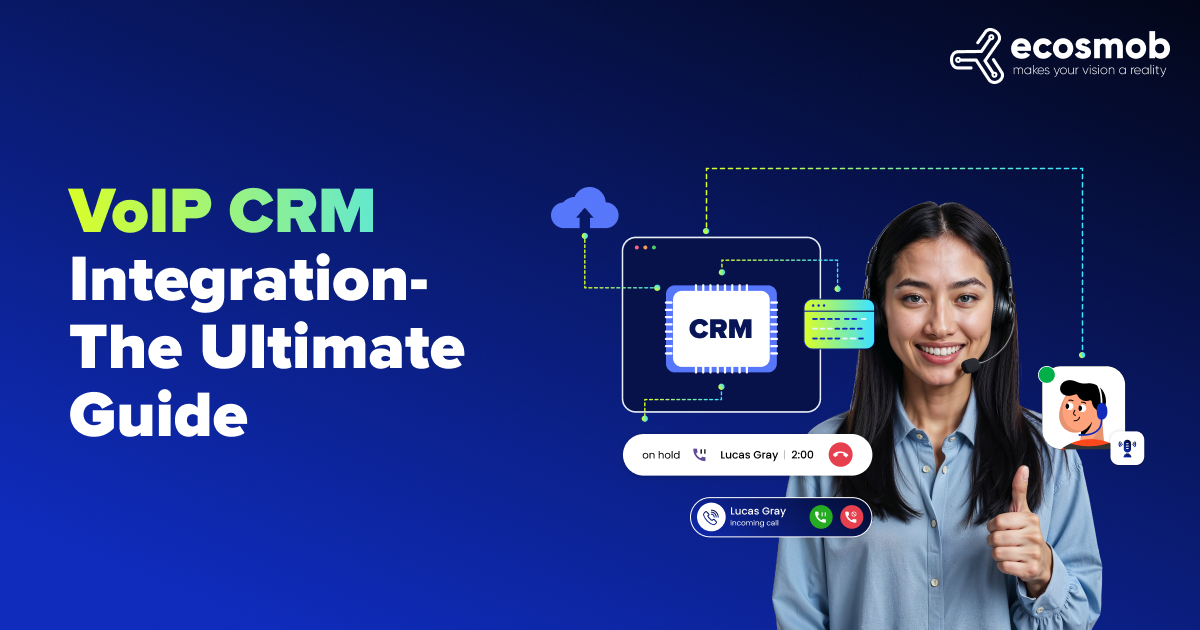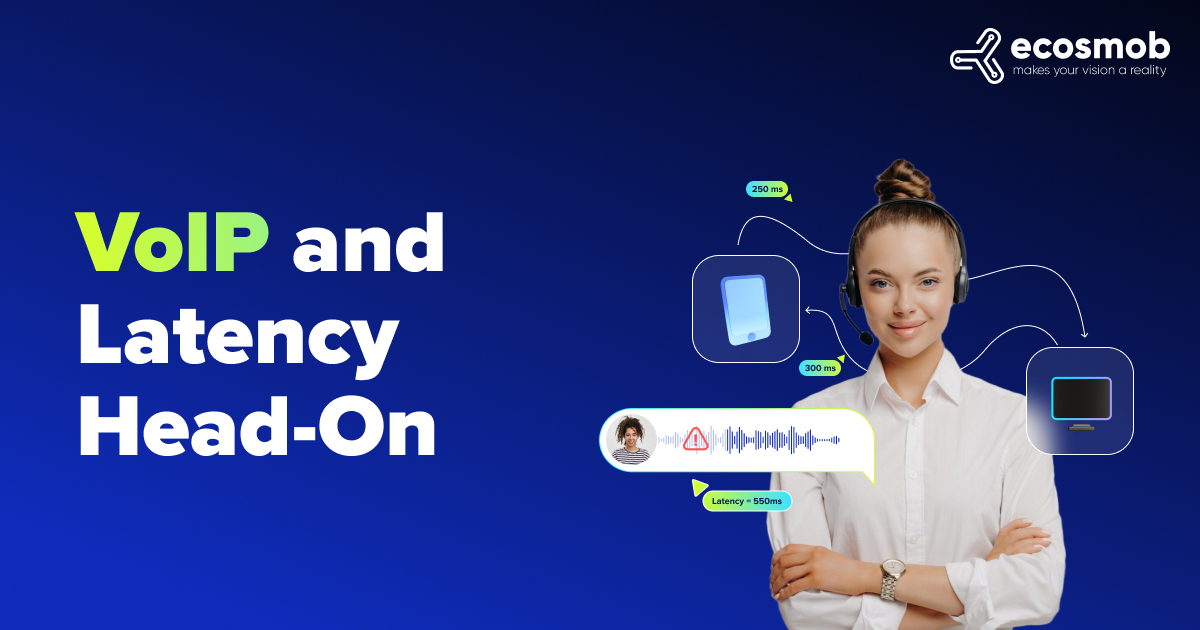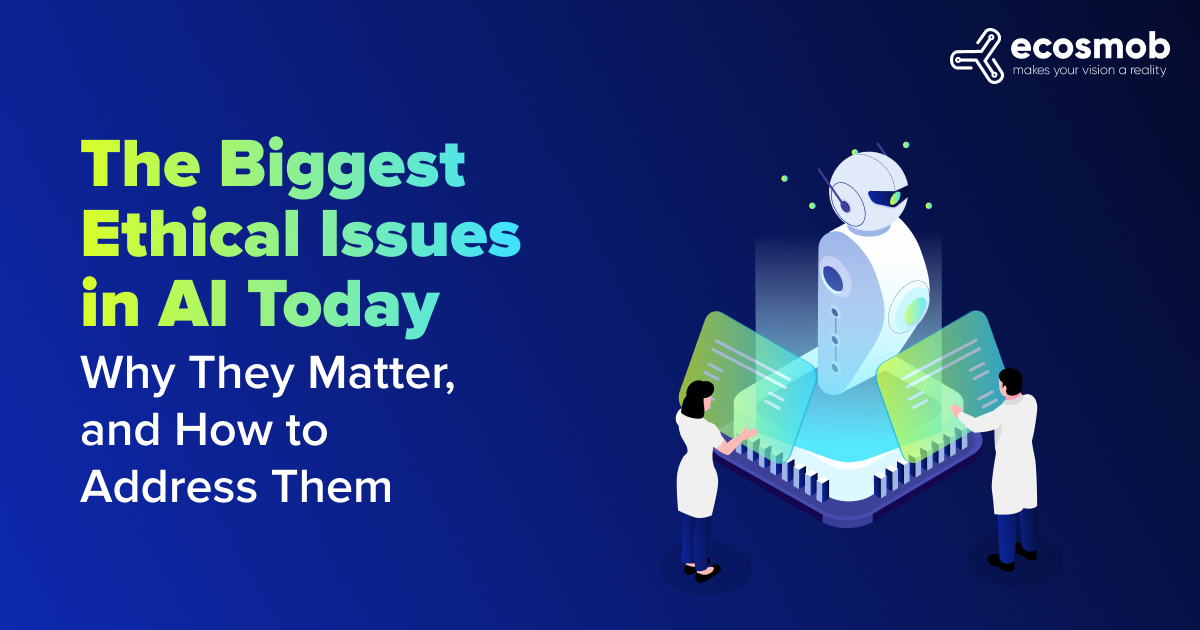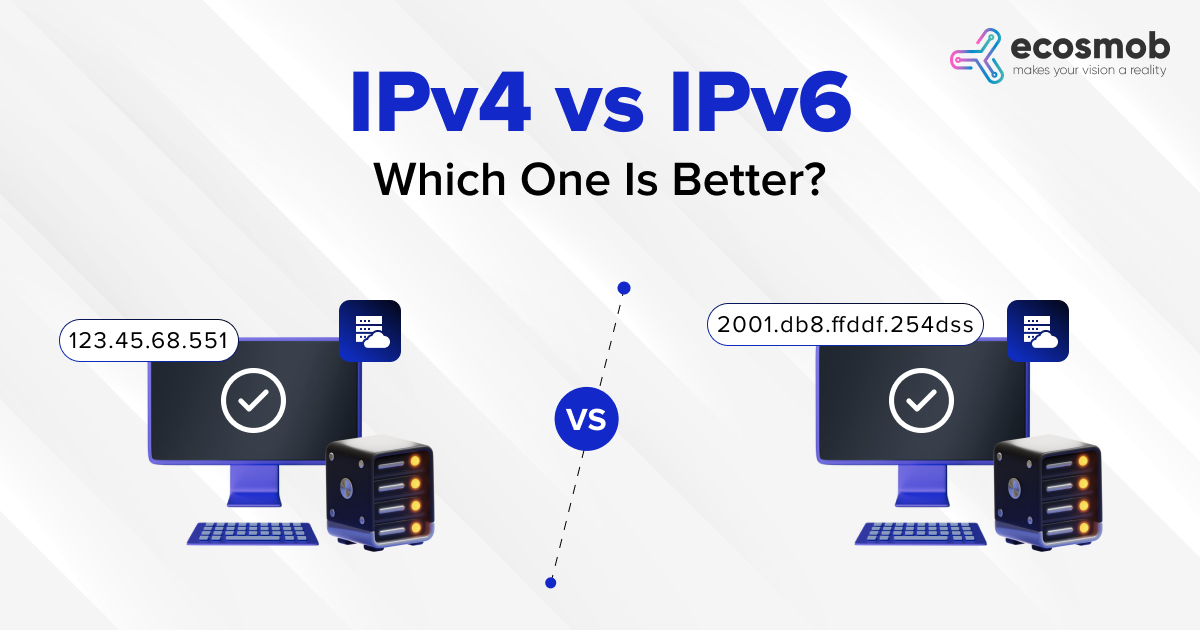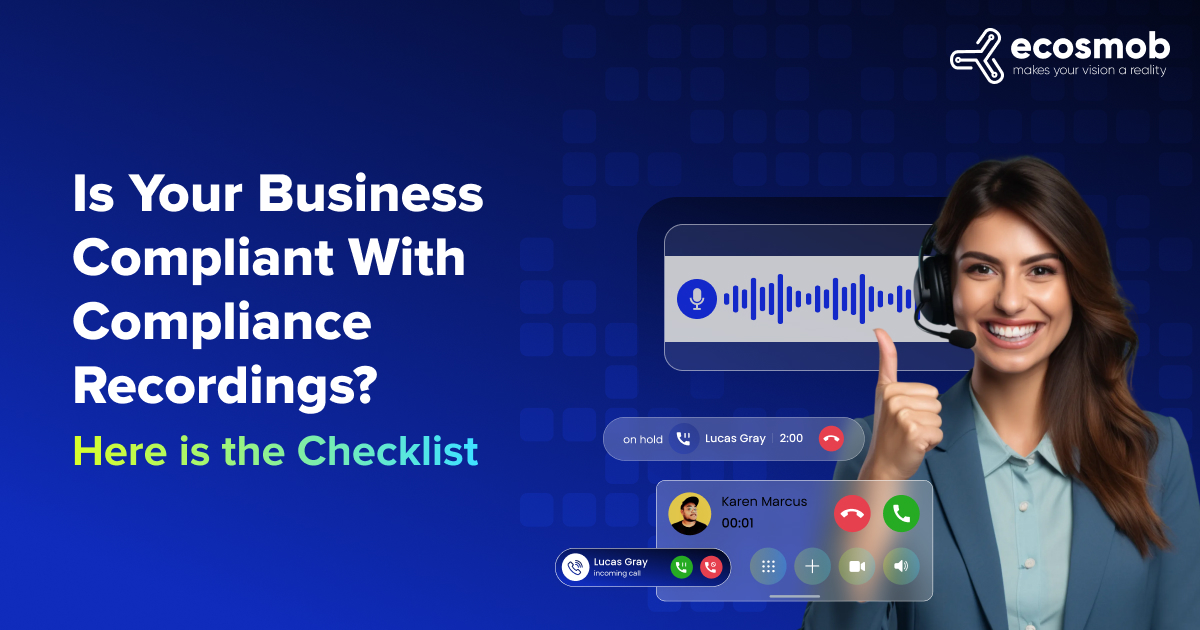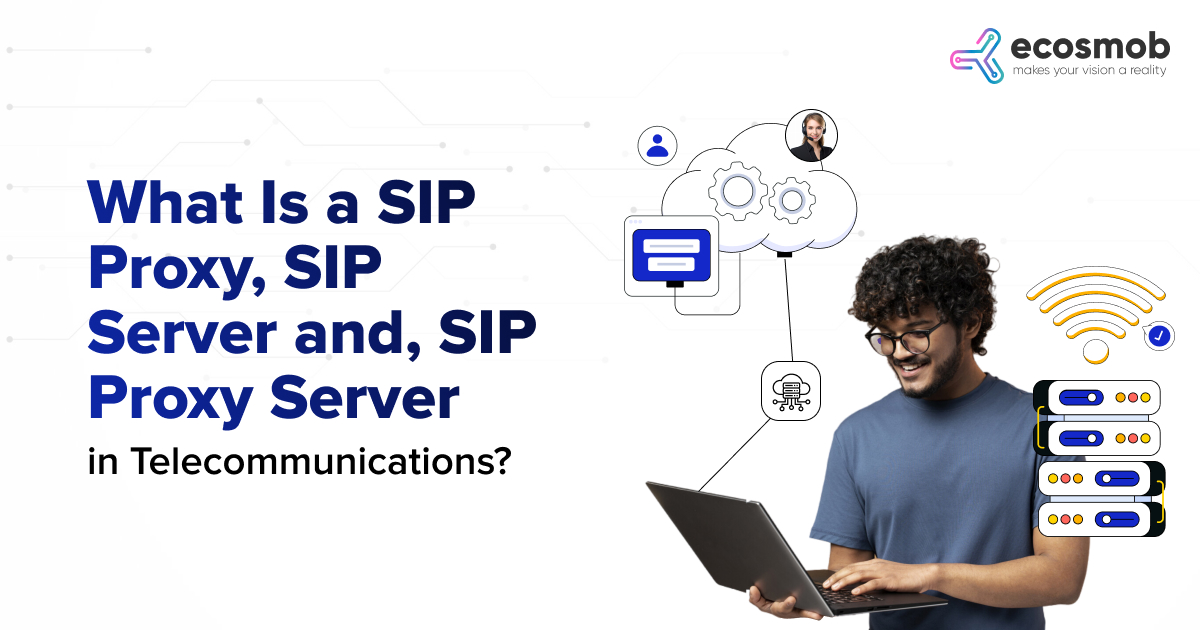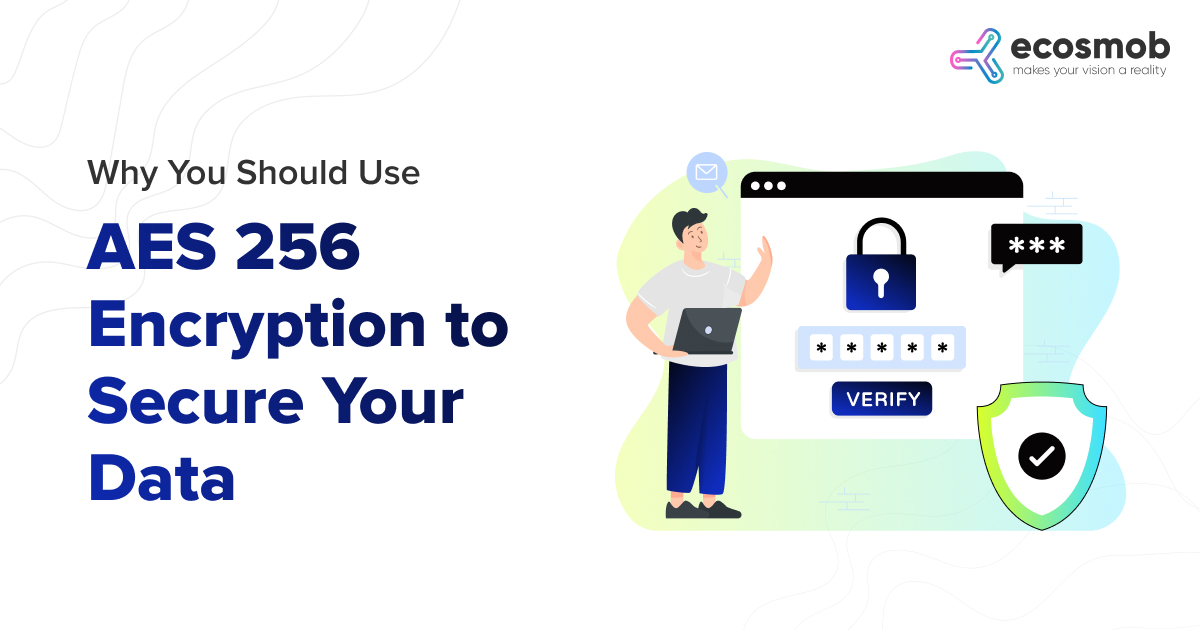QUICK SUMMARY
Learn every aspect that differentiates multichannel and omnichannel contact center solutions to make the best decision for your business and customers.
Choosing the right contact center strategy can make or break your customer experience. It is not just a technical choice–it is a decision that impacts customer satisfaction, loyalty, and overall operational efficiency.
Understanding the difference between multichannel and omnichannel contact centers can help you make the decision that defines your customers’ experiences and, hence, your overall relationship with them.
Let’s see what sets them apart so you can make the best choice for your business.
Tired of high churn rates? Boost retention with a custom omnichannel solution that keeps customers coming back.
What is a Multichannel Contact Center Solution?
A multichannel contact center solution lets your customers reach you through various channels—phone, email, chat, social media, you name it. Sounds good, right? But here’s the catch: these channels don’t talk to each other. Each channel functions independently. That means if a customer starts a conversation on chat and moves to email, they might have to start from scratch.
For businesses, this means data is siloed. An email conversation doesn’t integrate with a chat interaction, and the voice call history is separate from social media engagements. This fragmented approach can work for basic needs but often results in a disjointed customer experience, where continuity and personalization are sacrificed.
What is an Omni channel Contact Center Solution?
Omni channel contact center solutions take multichannel a step further. You can think of it like a customer experience upgrade. Unlike multichannel, in an omnichannel contact center, all these multiple channels are linked together.
Your customers can start a conversation on one channel and continue on another without repeating themselves. Every interaction flows, every piece of information is connected, and your agents always have the full picture.
Also Read: Contact Center as a Service (CCaaS): All You Need to Know
The Core Distinction: Integration vs. Segmentation
At first glance, multichannel and omnichannel contact centers might seem similar—both involve interacting with customers across multiple platforms. But, there is a fundamental difference.
The core difference between omnichannel and multichannel contact center solutions is integration versus segmentation. Multichannel operates with segmented, siloed channels—each functioning independently. This approach often leads to inefficiencies, such as repeated customer information requests, inconsistent service levels, and missed opportunities for personalization.
Omnichannel, on the other hand, focuses on integration. It’s about unifying the customer journey across all touchpoints, enabling a seamless flow of information that empowers both the customer and the agent. This approach improves the customer experience and operational efficiencies.
Also Read: Cloud Contact Center Architecture: What is it & How Does it Work?
Multichannel vs Omnichannel: Key Differences for Contact Centers
Let’s understand what else differentiates multichannel and omnichannel contact centers to help you make the best decision for your business.
1. Customer Journey Continuity
Omnichannel platforms provide a 360-degree view of the customer. With omnichannel contact centers, you can have a continuous interaction history, meaning a conversation can start on social media and seamlessly transition to email or phone without losing context. Agents can see past interactions and preferences and even anticipate future needs based on historical data.
Multichannel setups, however, often require the customer to repeat information, potentially leading to customer frustration.
2. Consistency in Customer Experience
Omnichannel ensures that the customer experience is consistent across all channels. Whether the customer engages through chat, email, or phone, they receive the same level of service, with interactions seamlessly continuing from one channel to another.
Due to the integrated nature of the system, the customer experiences a consistent level of service regardless of the channel.
In multichannel contact centers, the service quality can vary significantly from one channel to another.
3. Advanced Analytics and Insight Generation
Omnichannel systems aggregate customer data across all platforms, providing a comprehensive view of customer interactions. This integrated data can give you more sophisticated analytics and insights, enabling you to make proactive service adjustments and more targeted customer engagement strategies.
Multichannel systems may have data silos where information is not shared between channels. This often limits analytics to per-channel metrics, missing the holistic view.
4. Customer Effort Reduction
One key driver of customer satisfaction is effort reduction. Omnichannel contact center solutions minimize customer effort by allowing customers to switch channels without losing context. This leads to quicker resolution times as agents have immediate access to all previous interactions and context.
Multichannel systems, lacking this integration, can slow down the resolution process as agents piece together customer histories.
5. Scalability and Flexibility
Omnichannel solutions are designed with scalability in mind. They allow you to add new channels, integrate third-party applications, and scale customer support effortlessly.
This can be much more of a hassle with multichannel solutions. They often require significant reconfigurations to add new touchpoints, making them less adaptable.
Multichannel vs Omnichannel Contact Center Solutions at a Glance
| Feature | Multichannel | Omnichannel |
| Channel Integration | Independent, separate channels | Unified, interconnected channels |
| Customer Journey | Disjointed, channel-specific | Seamless, cross-channel continuity |
| Data Sharing | Siloed data, limited visibility | Integrated data, 360-degree customer view |
| Agent Efficiency | Fragmented view, manual context gathering | Comprehensive view, automated context delivery |
| Personalization | Basic, channel-limited | Advanced, real-time across all channels |
| Operational Flexibility | Rigid, harder to scale | Highly adaptable, easy to scale |
| Customer Effort | High, repetitive explanations | Low, continuous context |
| Insights and Analytics | Limited, channel-specific | Unified, actionable insights |
| Consistency Across Channels | Varies, potential gaps | Consistent, brand-aligned |
| Response Time | Slower, channel-dependent | Faster, with real-time context |
| Customer Satisfaction | Variable, channel-specific | Higher, due to integrated experience |
Deciding between multichannel and omnichannel contact center solutions is all about the kind of experience you want to offer your customers. If your goal is simply to be available across various channels, multichannel might work just fine. But if you’re aiming to genuinely connect with your customers, omnichannel is the clear choice.
Don’t let bad customer service hurt your business.
It’s not just about meeting expectations; it’s about raising the bar and making your business stand out when it comes to customer service.
Is that a direction your business aims to move in?
Reach out to Ecosmob today to learn how we can build a custom omnichannel contact center solution that is perfect for you and your customers.
FAQs
What are the cost implications of switching to an omnichannel contact center?
While initial costs may be higher, the long-term benefits of improved customer satisfaction, efficiency, and retention often outweigh the investment.
How do omnichannel contact center solutions affect customer data privacy?
Omnichannel platforms can enhance data privacy by integrating security measures across all channels, ensuring consistent compliance with data protection regulations.
Which industries benefit the most from omnichannel contact centers?
Industries with high customer interaction, such as retail, healthcare, finance, and telecommunications, see significant benefits from implementing omnichannel solutions.
What is the role of AI in omnichannel contact centers?
AI can provide real-time analytics, predictive insights, and automated customer interactions, enhancing the overall experience.
How do omnichannel contact centers handle high volumes of customer interactions?
Omnichannel solutions are designed to scale efficiently. They help businesses manage high volumes of interactions without compromising on service quality.



